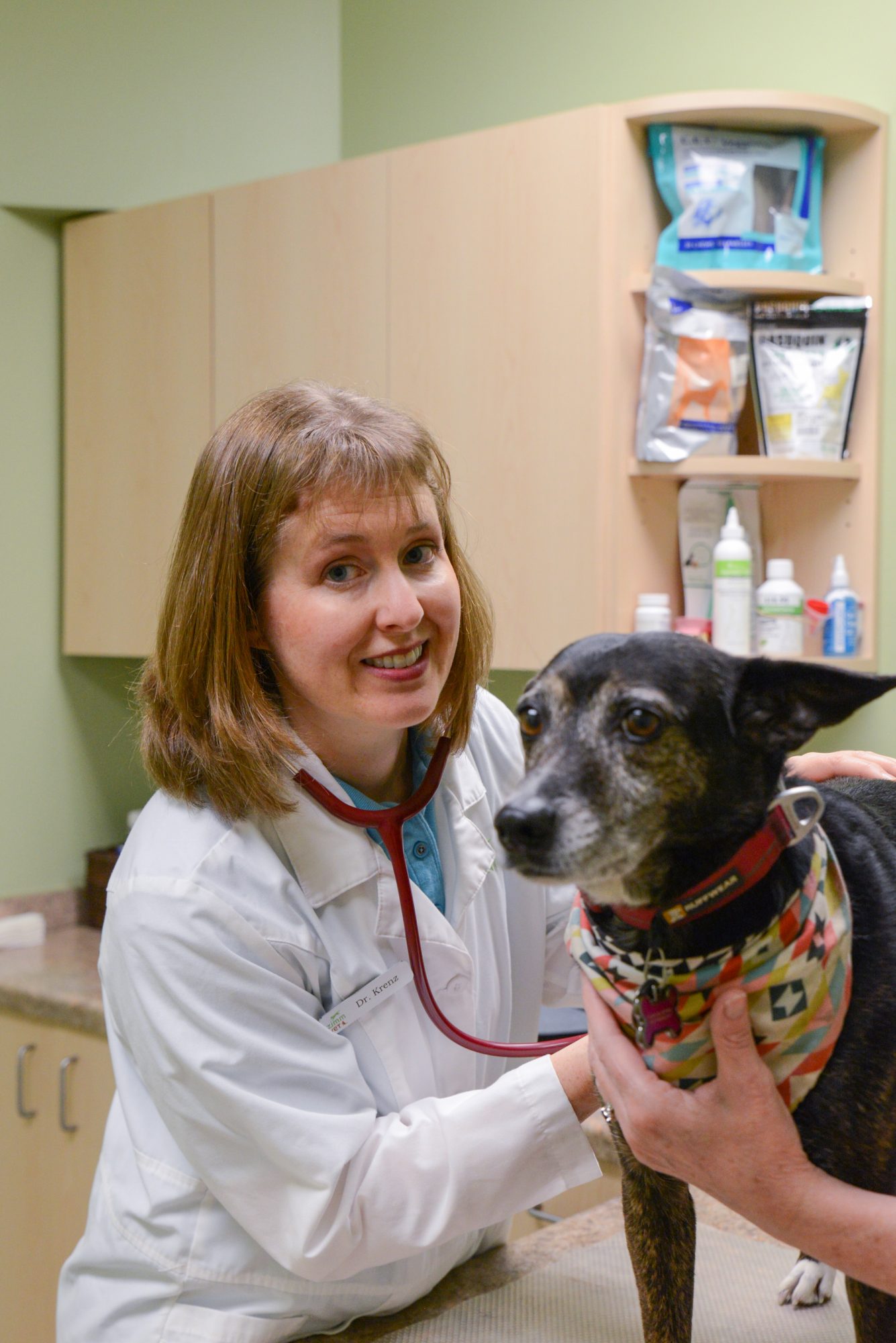Common Pet Vaccination Questions
By Dr. Maria Krenz, DVM – ZimmVet-763-856-4848
Vaccinating your dog or cat is part of keeping them healthy. Here are a few misconceptions pet owners often have.

I was told my puppy or kitten was current on vaccinations when adopted
Puppies and Kittens need a series of 2-3 vaccination boostered every 3-4 weeks until they are over 16 weeks old. If your pet is under 16 weeks old when adopted, then they were probably started on their series, but need additional vaccinations to receive full immunity. Most humane societies and rescues will do certain vaccinations such as distemper combination and rabies, if the pet is old enough. Vaccinations that are frequently not given by rescues or humane societies include leptospirosis, lyme, influenza and feline leukemia. After adoption, you should schedule an appointment with your veterinarian to discuss what is needed for your pet.
My pet was vaccinated for Lyme and contracted Lyme disease; the vaccination did
not work.
Unfortunately, no vaccination provides 100% protection, and it is dependent on the pet’s immune system response to the vaccination. Lyme disease is very difficult bacteria as it changes its surface proteins, depending on if it is in the tick or in the pet. When a pet shows positive for lyme disease, it means they were exposed to the bacteria, but it does not mean the pet will become sick from lyme disease. Often, pets that have been vaccinated do not get sick or show lesser symptoms as compared to unvaccinated dogs. Some drug companies will cover the cost of medication, treatment and additional testing, if a pet is positive for Lyme disease and is up-to-date on the vaccination. Pets that are positive for lyme disease are living in high-risk areas, where they are highly-likely to become infected again. Yearly vaccination is especially important for these pets, who have already had lyme disease, to prevent reinfection.
My pet is old so vaccinations are no longer needed.
Senior pets, just like senior people have a decreased immune system and are more susceptible to diseases. Senior pets should continue vaccination as recommended by your veterinarian. The rabies and distemper vaccinations are often given on a 3-year schedule, while vaccinations such as bordetella (kennel cough) and lyme are always given yearly. Age is not a disease and our senior pets deserve medical care, especially when they are aging.
My pet had a vaccination reaction, so I no longer vaccinate.
The most common form of vaccination reaction is local pain as well as vomiting and diarrhea. These symptoms are easily prevented by giving a pet pain medication and an antihistamine (benadryl) prior to the next vaccination. It is best to notify your veterinarian as soon as symptoms occur, so treatment can be prescribed. If you pet has a more serious reaction, your veterinarian will decide if it is best to discontinue vaccination. Blood titers for rabies and distemper can be done to check your pet’s immunity levels. Any reaction should be reported to the drug company that manufactures the vaccination.
My pet is indoors, so it does not need vaccines.
The rabies and distemper vaccinations are recommended for all pets regardless of their lifestyle. These recommendations are put forth by the American Animal Hospital Association and the American Association of Feline Practitioners, which set the standard for pet care. Rabies is also legally required for all cats and dogs by Minnesota State Law, since it is a human health risk. Often these vaccinations are updated every 3 years. Your pet should have a physical examination and other wellness services every 6-12 months, even when vaccines are not due.
Disclaimer: This written content is meant to be educational and is not medical advice. Always consult a veterinarian about medical advice for your pet.


